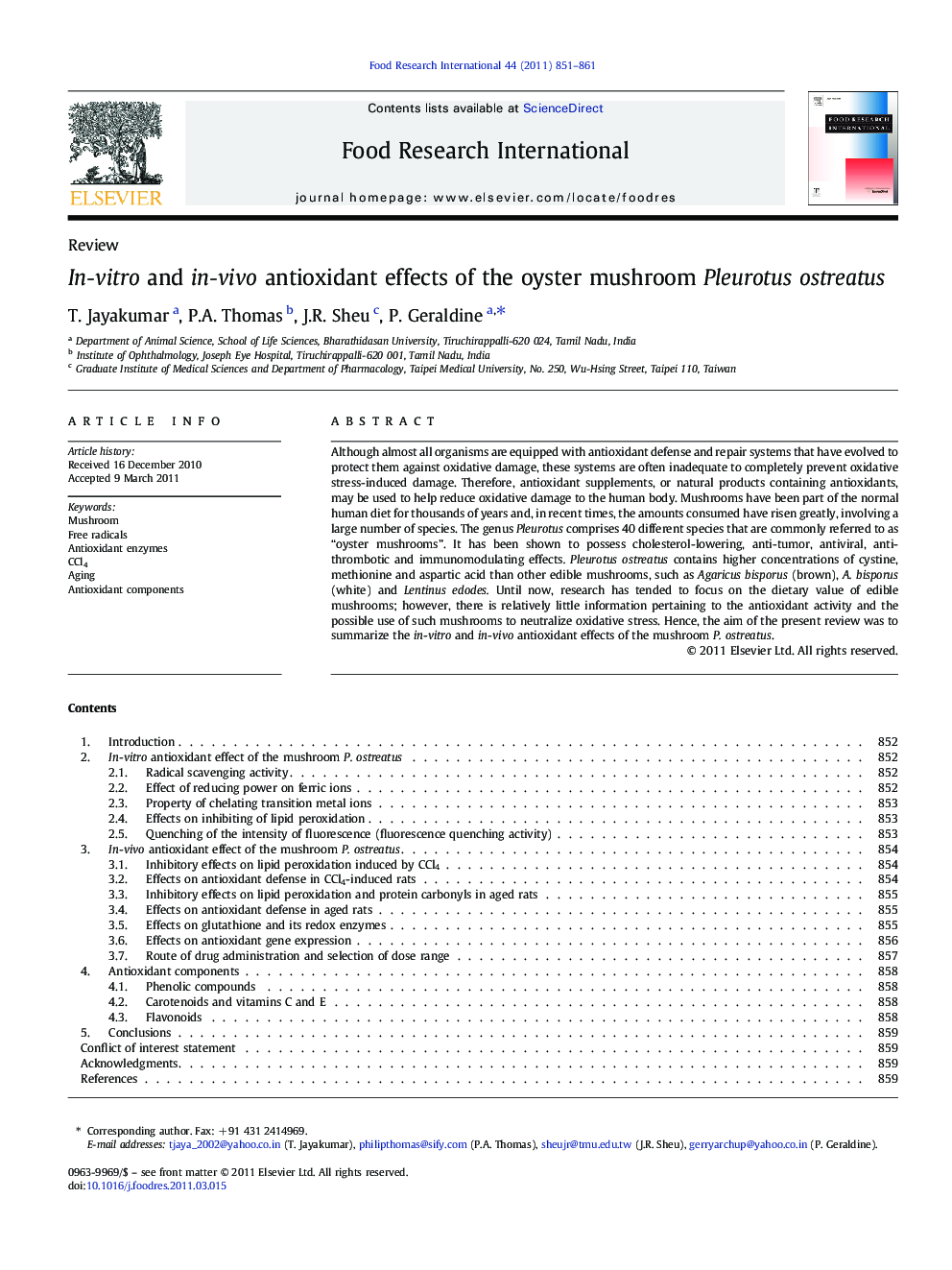| Article ID | Journal | Published Year | Pages | File Type |
|---|---|---|---|---|
| 4561839 | Food Research International | 2011 | 11 Pages |
Although almost all organisms are equipped with antioxidant defense and repair systems that have evolved to protect them against oxidative damage, these systems are often inadequate to completely prevent oxidative stress-induced damage. Therefore, antioxidant supplements, or natural products containing antioxidants, may be used to help reduce oxidative damage to the human body. Mushrooms have been part of the normal human diet for thousands of years and, in recent times, the amounts consumed have risen greatly, involving a large number of species. The genus Pleurotus comprises 40 different species that are commonly referred to as “oyster mushrooms”. It has been shown to possess cholesterol-lowering, anti-tumor, antiviral, anti-thrombotic and immunomodulating effects. Pleurotus ostreatus contains higher concentrations of cystine, methionine and aspartic acid than other edible mushrooms, such as Agaricus bisporus (brown), A. bisporus (white) and Lentinus edodes. Until now, research has tended to focus on the dietary value of edible mushrooms; however, there is relatively little information pertaining to the antioxidant activity and the possible use of such mushrooms to neutralize oxidative stress. Hence, the aim of the present review was to summarize the in-vitro and in-vivo antioxidant effects of the mushroom P. ostreatus.
